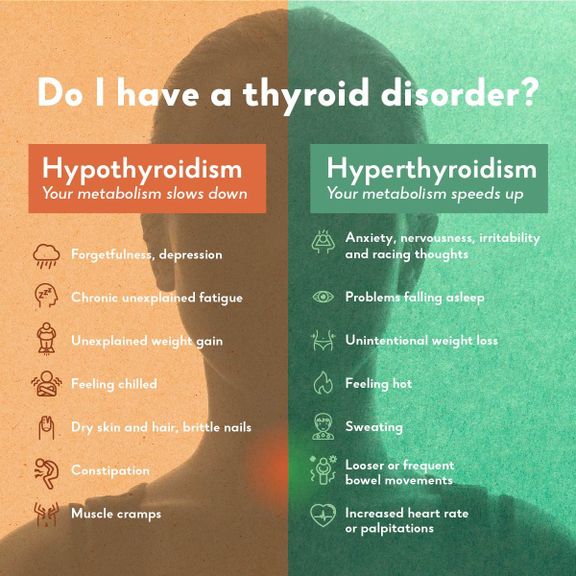The butterfly shaped gland located in the front and base of your neck is your thyroid. The thyroid gland is part of the endocrine system and it produces hormones that regulate the body’s metabolism. The thyroid hormones help to regulate the following functions: weight control, body temperature, heart rate, bowel movements, cholesterol, menstrual cycles, muscle strength and the central and peripheral nervous systems.
The most common thyroid disorders are hypothyroidism and hyperthyroidism. Hypothyroidism occurs when your thyroid does not produce enough thyroid hormones, which cause symptoms of a slow metabolism. Hyperthyroidism, on the other hand, occurs when your thyroid produces too much hormone, causing symptoms of a fast metabolism.
Below are some possible symptoms of hypo- and hyperthyroidism. If you are concerned you may have a thyroid disorder, please schedule an appointment with your primary care physician first to perform a preliminary screening test. If testing is abnormal, they may then refer you to an endocrinologist.

To discuss symptoms or questions with a primary care provider, schedule an appointment online.
Learn more about our endocrinology team.
Health Topics:







